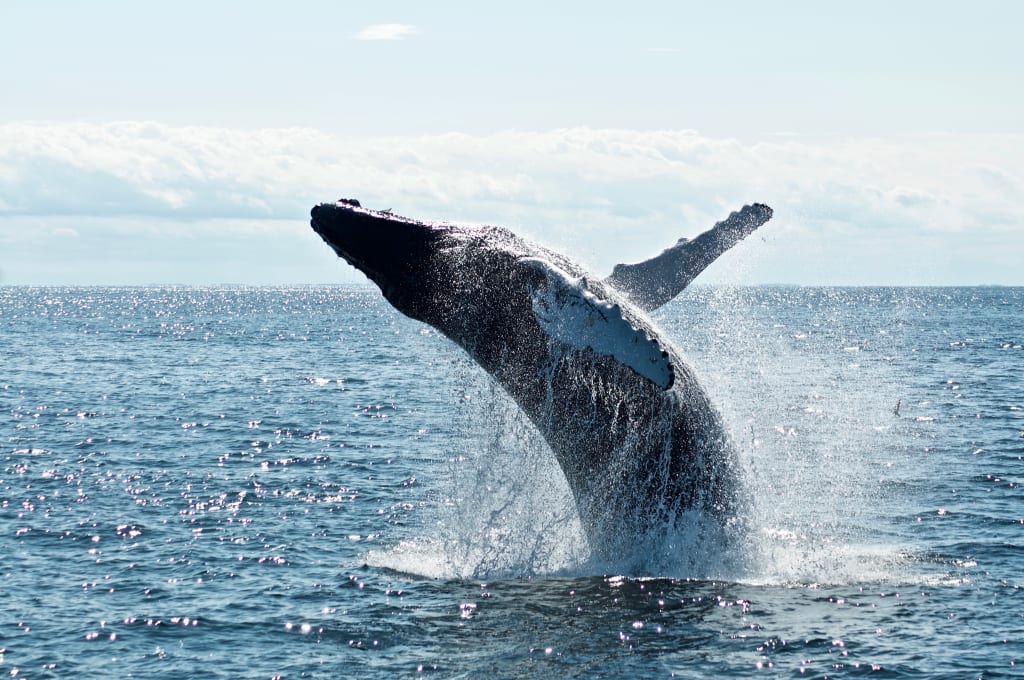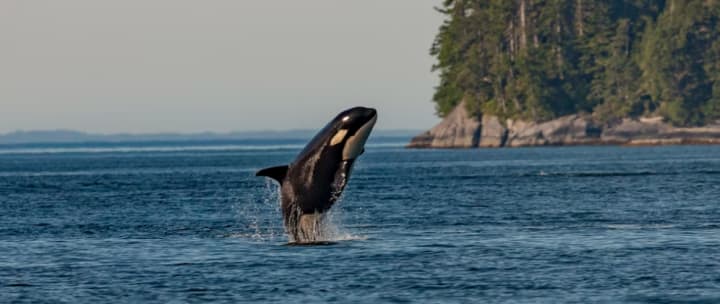
While in the Seine River
Earlier this year, a killer whale over 4 meters long appeared in the Seine River in France. Its appearance surprised everyone, and after observing it for some time, local officials found it in a constant state of panic and stopped eating altogether. For some reason, rescue activities for this orca were delayed until late May, when the orca's health was so bad that it was unable to return and was euthanized in the basin between Le Havre and Rouen.
After its autopsy, it was found that it had been on hunger strike for a long time, its body fat had almost disappeared, and there was a bullet stuck in the base of its skull. It is unclear whether this bullet was the cause of its death or had existed for a long time.
Because the rescue was very untimely and did not take any effective measures. Watershed management officials were inundated with accusations from environmentalists around the world, but what else could be done?
To my surprise, a few months later on August 2, another whale, this time a beluga, was spotted in the Seine less than 50 miles from Paris.
Although it was still alive, it was in the same dire state of health. For the local area, this is a chance to change dignity.
The sudden appearance of the beluga whale
Many fear this beluga's journey will end like that orca's. The nonprofit Sea Shepherd immediately sprang into action, bringing a drone with them to assess the beluga's health. The beluga was also in poor condition, it was extremely thin and lethargic and even had some small spots on its body, it is not known if it was a natural reaction caused by freshwater or a medical condition.
The Seine is quite polluted, and the human population on both sides of the river is dense and noisy, all of which pose a potentially fatal threat to the beluga; and the beluga can only temporarily live in fresh water.
This beluga whale is quite alert, although local officials have been trying to guide it away, but this beluga whale just does not take up the fight, the priority is to save its life. So officials force-fed its vitamins and other medicines in the hope of boosting its appetite, but it failed.
And the beluga's aimless movement could take it further into the Seine, with the water in the area closer to Paris getting dirtier and further away from the ocean. Officials are unable to guide the beluga, but it is possible to restrict its movements, and they have surrounded the area where it is moving and are planning how to guide it to the English Channel.
Officials are asking people to stay away from the whale and not cause it any stress. With the experience of the last failed attempt, this time officials bit the bullet and vowed not to make a fool of themselves again.
Beluga whale rescue operation

Time went on until August 9, when the long-planned rescue operation took place. The first stage was to remove the beluga whale, which was stranded in the Seine River in northern France, from the water.
After nearly six hours of work, the 800-kilogram whale was picked up from the river by an industrial net and crane. 24 police officers and fire divers worked together to carry it and carefully moved it to a barge at the river's edge, and once it was on board, a dozen veterinarians immediately began to do their jobs, testing the whale and injecting it with nutrients.
After determining that its condition was stable, it entered the second phase, where the site personnel transferred the beluga to a specially modified truck. Because the beluga was still resilient and its body functions were intact, the field crew then decided to transfer it directly to the English Channel and escort it away.
The big-hearted operation was a success.
The ability to assemble so many resources and manpower for the rescue was large because conservation groups and individuals around the world maintained a high level of interest in the pair of beluga whales, all of whom made significant financial donations and other assistance.
Why are there beluga whales on the Seine?
Beluga whales usually live in cold Arctic waters. Each fall, when the waters begin to freeze over, they migrate south to replenish their diet but have never been found to make it as far south as Paris.
It is unclear why belugas would travel so far south.
Scientists have speculated on the reasons for this occurrence. It is possible that the echolocation of boats and whales confused each other, which led to the beluga's getting lost; or global warming made the water temperature change, which affected the beluga's judgment.
Either way, this is certainly an anomaly and hopefully, it won't continue to happen.
About the Creator
Tanoria
no rose without a thorn.






Comments
There are no comments for this story
Be the first to respond and start the conversation.